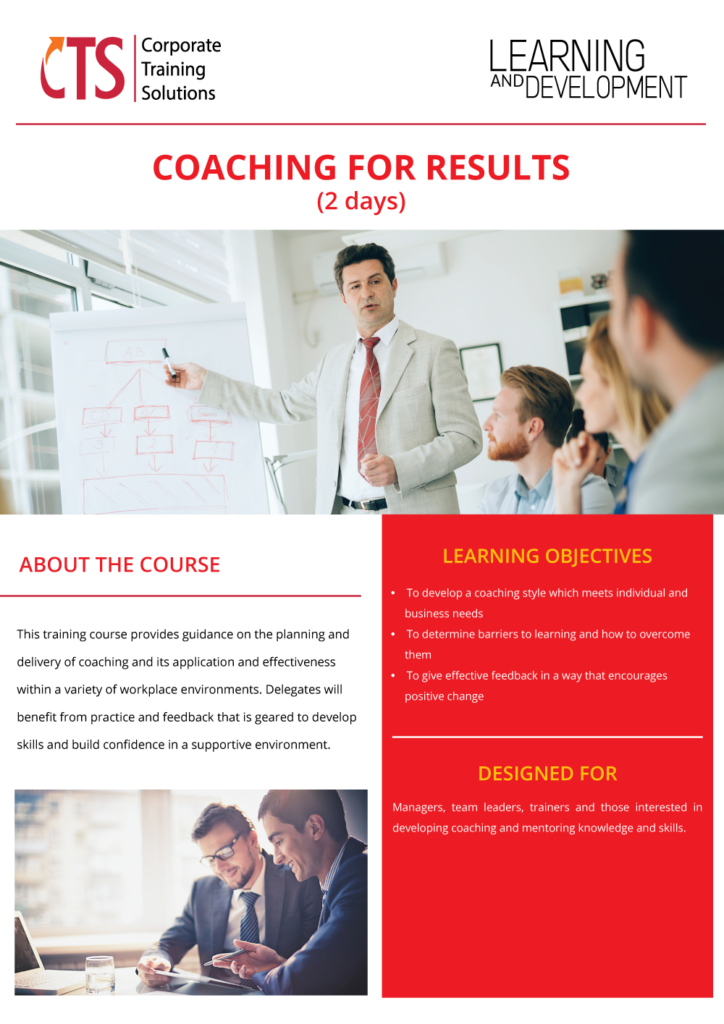THE MANAGERS’ ROLE AS A COACH
• What is coaching and where does it fit in the organisation?
• Understanding what to coach – knowledge, skills and attitude
• The difference between “input” and “output” coaching
COACHING AND TRAINING
• Understanding when to coach and when to provide training
QUALITIES OF THE EFFECTIVE COACH
• Facilitation techniques to develop output coaching styles and encourage discovery based learning
• Developing questioning techniques
• Developing strong communication skills
• Pausing
• Adapting your coaching style
IDENTIFYING LEARNING NEEDS AND STYLES
• Matching learning needs with competency standards
• Developing learning objectives
• Learning outcomes
• Assessing the participants
IDENTIFYING BARRIERS TO LEARNING
• Identifying issues and how to tackle them
STRUCTURING THE COACHING SESSION
• Understanding a four part coaching model designed to take you from preparation to feedback
• The GROW model for developmental coaching
SETTING OBJECTIVES AND TARGETS
• Setting coaching objectives – SMART goals
COACHING THE NEW TEAM MEMBER
• Helping the staff member to “buy-in” to the coaching process
• Running a coaching session – what to brief and what to look out
• Developing a coaching plan
MANAGING THE POOR PERFORMER
• What to do when things go wrong
FEEDBACK SKILLS
• Feedback – the key rules for coaches to follow
MONITORING PERFORMANCE
PRACTICAL SESSIONS INVOLVING COACHING ON WORKPLACE SCENARIOS
LEARNING TOOLS
- Coach’s mindset model
- G.R.O.W coaching process
- Questioning and Feedback techniques
- Coaching Journey model
- Delivering a coaching session template




